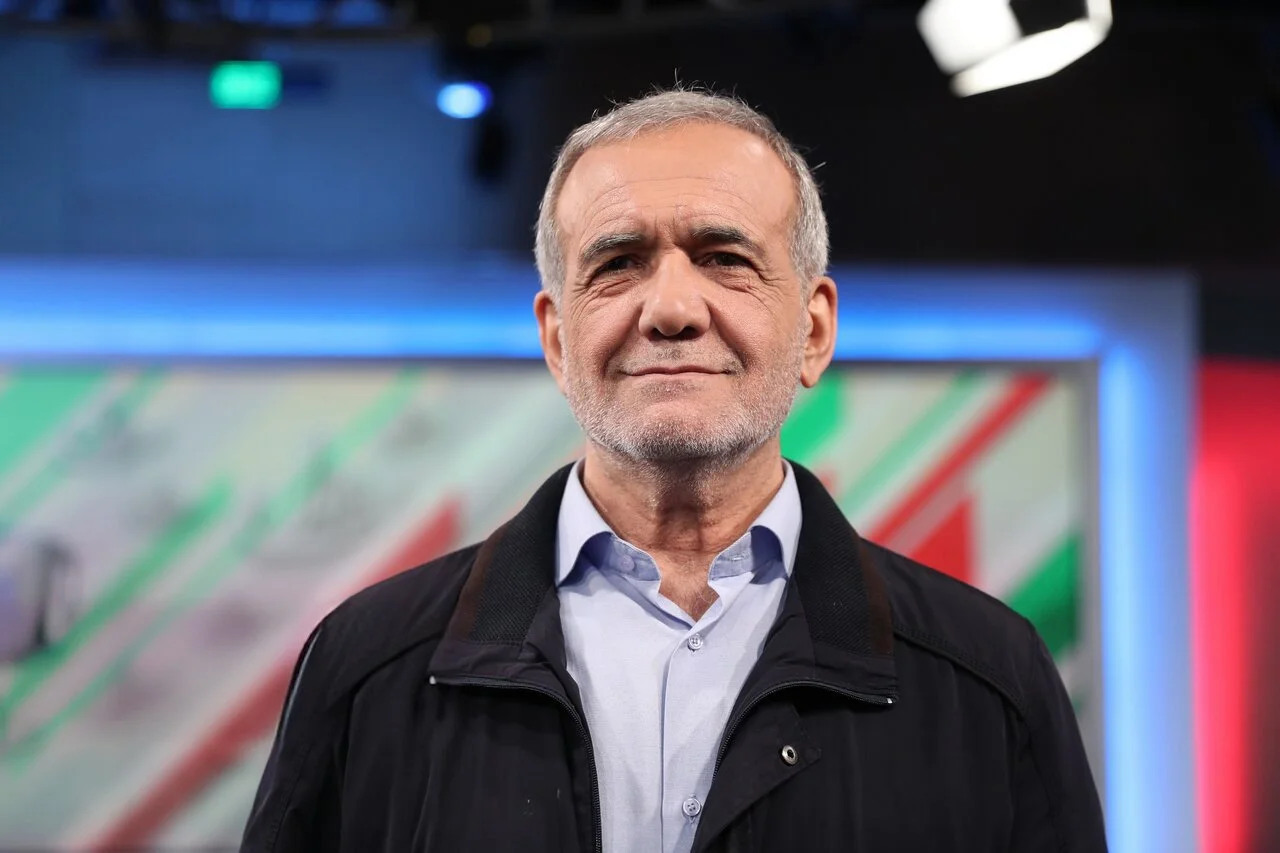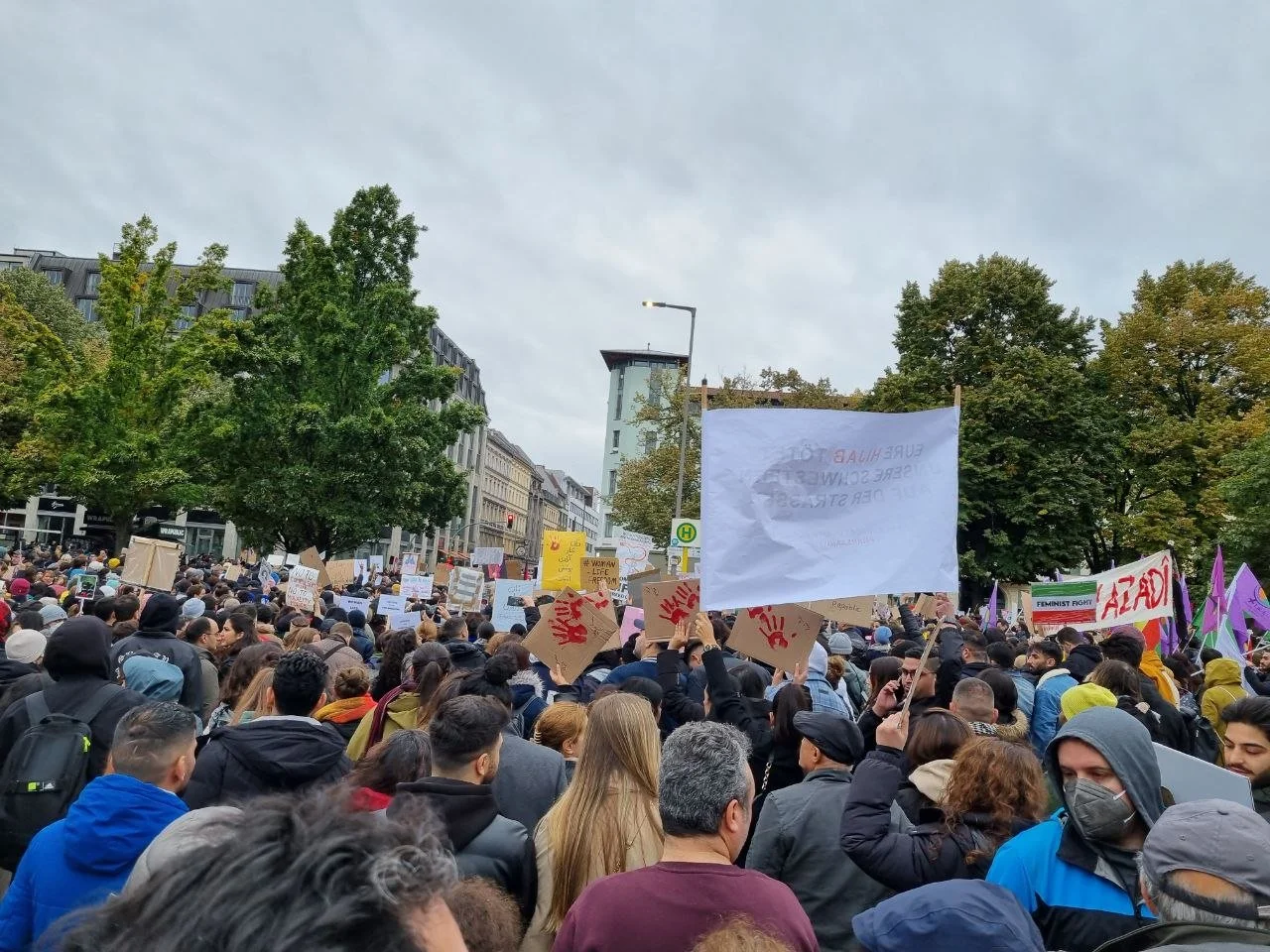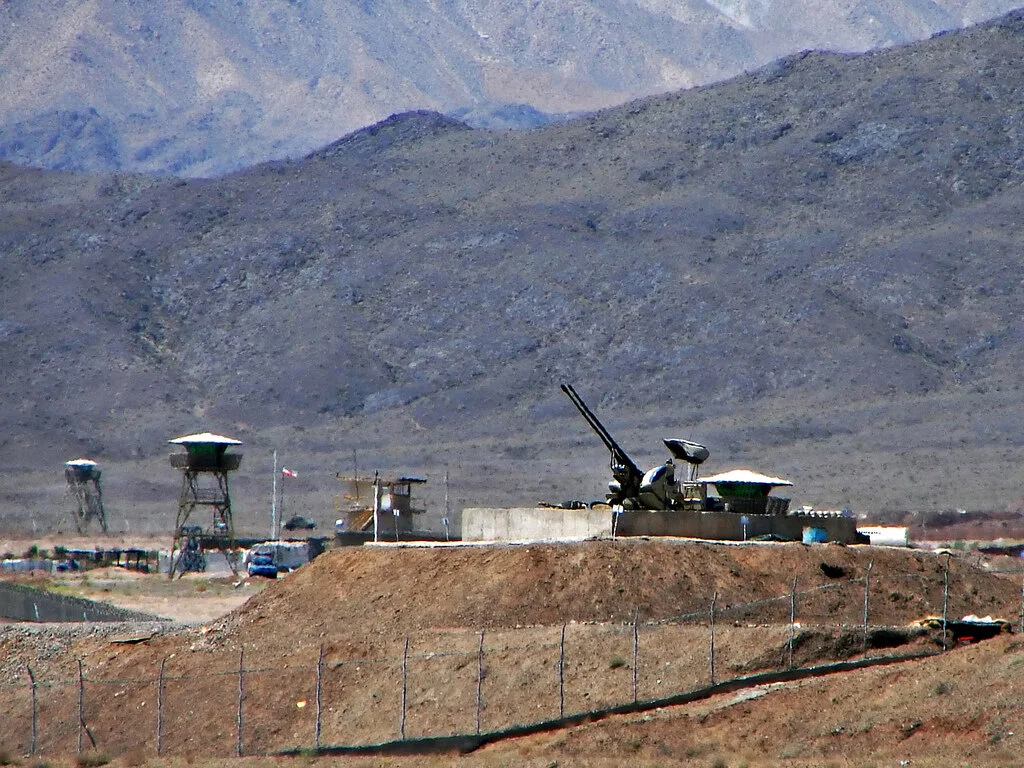A woman paces down the streets of Tehran, Iran’s capital, on Nov. 2, 2024, arms crossed, in the footage published by the Guardian. Dressed only in a purple bra and striped white and pink underwear, she’s both a rare spot of color in a sea of black and white, as well as an hourglass rapidly running out. She gazes up at the sky and breathes out: She knows what’s coming, but she doesn’t run. She merely sits down on the wide railing of a nearby staircase, hands folded in her lap, and waits.
What to know about Masoud Pezeshkian, Iran’s new reformist president
Reformist candidate Masoud Pezeshkian defeated ultraconservative Saeed Jalili in a runoff on July 5, 2024, winning Iran’s presidential election, according to AP News. The win comes at a time when Iran has received significant international attention due to its strict religious domestic policy and anti-Israel foreign policy. This election’s result may signify a shift in politics for Iran.
Social media spreads awareness and misinformation about Iran protests
Since September, women’s rights protests have erupted throughout Iran following the death of 22-year-old Mahsa Amini. Amini was, by eyewitness account, detained by the Iranian government, killed in police custody after her arrest by Iran’s morality police for “allegedly wearing her headscarf too loosely,” the Times reported.
President Tatum responds to ongoing protests in Iran
Protests erupt in Iran following death of Mahsa Amini
Iran elects new president Ebrahim Raisi, implicates Nuclear Deal plans
Nuclear deal talks resume after recent cyberattack on Iranian nuclear facility
Leader in Iranian Nuclear Science Killed
Pictured above: Mohsen Fakhrizadeh. Photo courtesy of Wikimedia.
By Sophie Soloway ’23
Global Editor
Iran’s top nuclear scientist, Mohsen Fakhrizadeh, was killed in an attack in his vehicle on Friday, Nov. 27. After a reported gun attack in northern Iran, hospital workers unsuccessfully attempted to revive the prominent figure.
Fakhrizadeh was the head of Iran’s Research and Innovation Organization and was widely regarded as a national hero for his work with the country’s nuclear program, both before and after the Iranian government officially ended it. According to Senior Fellow at Carnegie Endowment for International Peace Karim Sadjadpour, “Fakhrizadeh likely knew more about Iran’s nuclear program than any living human. Losing his leadership, knowledge and institutional memory is undoubtedly a blow to the Islamic Republic.” Protests quickly emerged in Iran, reflecting the significance of the loss for the country.
Officials have not yet pinpointed the individual responsible for the attack. However, on Saturday, Nov. 28, Iran’s President Hassan Rouhani accused Israeli leadership of being responsible for the scientist’s death. According to The New York Times, three unnamed American officials have made similar statements.
Having had a critical role in the nation’s development of nuclear technology, Fakhrizadeh has long been a person of interest to the Israeli intelligence agency, Mossad, as well as to U.S. intelligence agencies. The U.S. and Israel are allies and have historically vehemently opposed Iran’s nuclear program, as Israel specifically views Iran as its largest regional threat. Although Fakhrizadeh denied that the purpose of Iran’s nuclear program was related to building nuclear arms, documents stolen by Israel in early 2018 suggested otherwise.
When Israeli agents stole approximately 50,000 pages and 163 discs of information on Jan. 31, 2018, they concluded that the Iran nuclear program was ongoing and dedicated to developing nuclear weapons. Israel’s Prime Minister Benjamin Netanyahu released this information days before U.S. President Donald Trump pulled out of a nuclear deal with Iran.
As of Friday, Nov. 27, Netanyahu’s administration has not officially responded to Rouhani’s claims that Israel played a role in the murder of Fakhrizadeh.
The assassination might provoke further conflict in the region. Rouhani has pledged to retaliate against those responsible for the murder. Fakhrizadeh’s assassination was also compared to the U.S.’ January airstrike on Qasem Soleimani, an Iranian operations leader. This previous attack is largely considered to have increased tensions between Iran and the U.S. since Trump’s withdrawal from the Iran nuclear deal in 2018. As the U.S. presidency enters a transitional period, this attack may impact President-elect Joe Biden’s plans to alter relations with Iran.
Carrie Lewis ’23, a Mount Holyoke student interested in international relations, noted that “because of the United State’s military support for Israel and their previous attack on [the] Iranian leader [Soleimani], this might block progress between the relationship between Iran and the United States, especially under Biden.”
Biden has long stated that his administration plans to return to the Obama-era nuclear deal with Iran that Trump undid. Given the salient relationship between the U.S. and Israel and both nations’ suspected roles in assassinating high-profile officials, this recent attack is expected to make a nuclear deal with Iran significantly harder to achieve for the president-elect. As protests mourning Fakhrizadeh’s death continue in Iran and more Iranian officials place blame on the U.S.-Israel alliance, concerns regarding the future of these regional relationships mount.
Helen Roane ’23, an international relations major, said, “I think it’s really interesting how Israel really put itself in the middle of an international conflict over Iran’s nuclear program. Because it seems like they are counting on the United States support, which is not guaranteed with a Biden presidency that is looking perhaps for a more diplomatic resolution to such issues. Either way, it remains an impactful action that clearly says that the government of Israel is not afraid of taking actions to stand for what they think protects their national interest.
Middle East teach-in discusses U.S. actions
On Monday, Feb. 17, a panel of Five College professors held a teach-in in Hooker Auditorium titled “The Middle East Crisis: How Did We Get Here? What’s Next?”, examining the impact of U.S. foreign policy on the Middle East. The catalyst of the event was the death of Iranian General Qasem Suleimani, who was killed by a U.S. airstrike in early January.
International tensions heighten after US authorizes military killing of Iranian top official
President Trump’s travel ban will have significant impact on affected countries
BY SARAH LOFSTROM ’19
GLOBAL EDITOR
On January 27, President Trump issued Executive Order 13764 prohibiting travelers from Iran, Iraq, Syria, Libya, Somalia, Yemen and Sudan from entering the United States for 90 days and suspending all refugee admission for 120 days. The Executive Order is entitled "Protecting the Nation from Foreign Terrorist Entry into the U.S." as reported by CNN.







